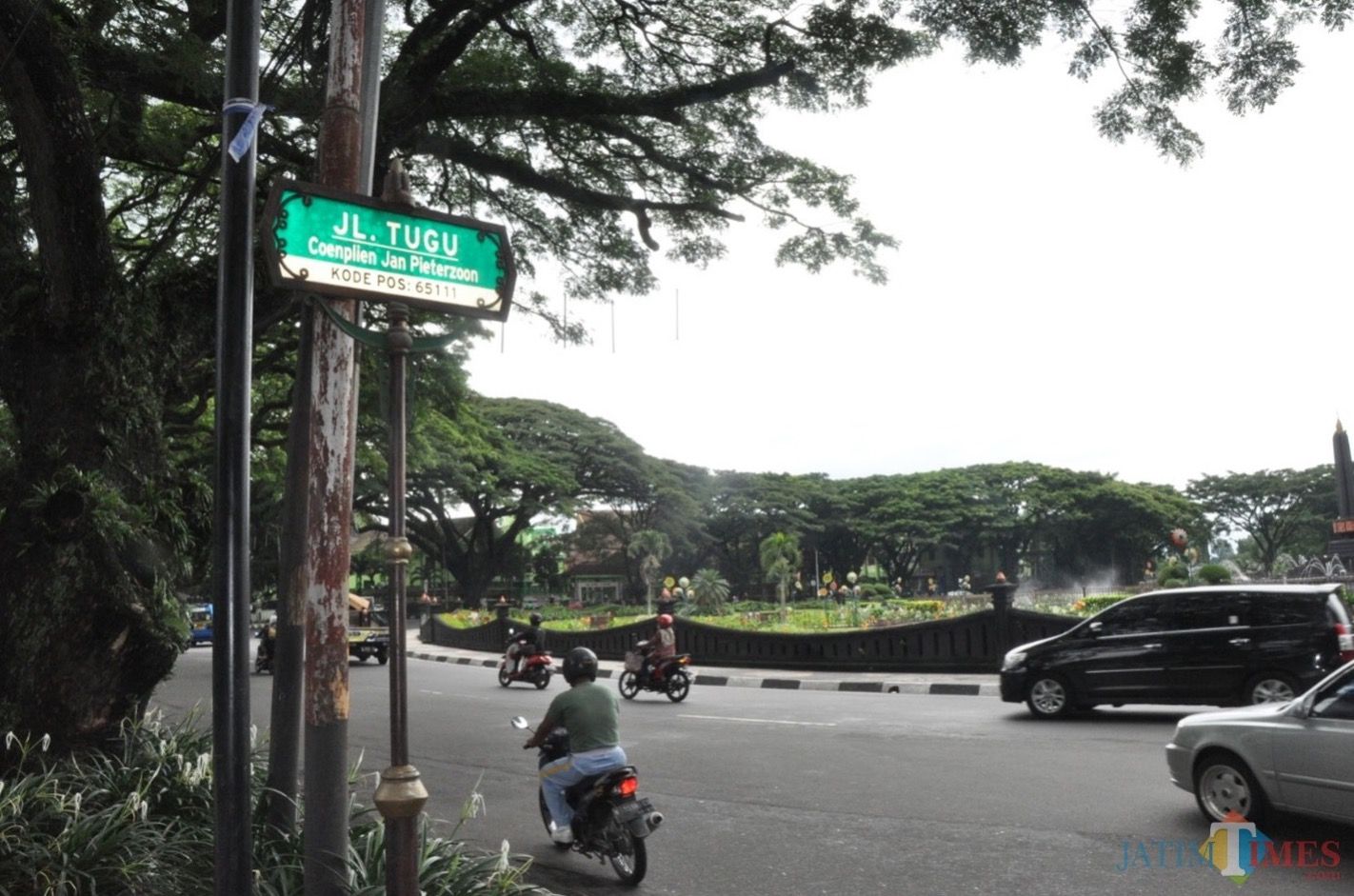Coen never actually left: colonialism, monuments, and troubled memory
Deze tekst is alleen beschikbaar in het Engels, en werd geschreven als reactie op een bezoek aan de screening van History – Memory – Commemoration / JAVA in Nest tijdens Movies That Matter Festival.
- Taufiq Hanafi
On Saturday evening, 23 March 2024, Nest hosted a captivating event: a film screening and panel discussion called Movies That Matter: History – Memory – Commemoration / JAVA. The first of seven series, this film is beautifully made by Hans van Houwelingen, Iswanto Hartono, and Mirwan Andan and digs into postcolonial dynamics in Indonesian society.
As the lights dimmed, JAVA immediately captured attention with a striking visual – a montage of historical footage on the removal of the Jan Pieterszoon Coen statue from the former Waterlooplein (now Lapangan Banteng) in Batavia (now Jakarta) on 7 March 1943. Erected in 1876 to commemorate 250 years of Batavia, the 4.6-meter-high statue stood as a symbol of Dutch colonial power and authority.
The archival footage gave an introduction to the complexities of colonial legacies in Indonesia. Within the context of colonial monuments and urban landscapes, JAVA delved into the enduring presence—or, perhaps the perceived absence—of Dutch colonialism in Indonesian public spaces and historical memory. It invited viewers to reflect the ways in which history is remembered and commemorated.
Throughout the screening, voices from diverse backgrounds—former journalist, high school students, university professor to poets, passers-by, and community leaders were heard. They shared reflections on colonialism, identity, and heritage.
Hans van Houwelingen said the film aimed to gather unfiltered perspectives or ‘voices without any prior direction or preconceived ideas.’ Singing the same tune, Iswanto Hartono stressed the importance of ‘keeping it loose’ approach to the filmmaking process. He argued that it would allow for authentic and diverse narratives to emerge organically. In short, and to quote Hans van Houwelingen, ‘what happened is what happened.’
Indeed, all who appeared in the film seemed to take the liberty to share their perspective. Yet, a surprising consensus emerged. Almost everyone except for historian J.J. Rizal and professor Melani Budianta, expressed gratitude for Dutch contributions to Indonesia. Zamira Loebis, the journalist, viewed Dutch colonialism as a force of progress and modernization. Naufal, the high school student, said likewise. And Eka Budianta, the poet, also shared his take on stolen heritage. He said that the Indonesians are not yet capable of taking care of Indonesia’s national heritage currently kept in museums in the Netherlands. He then added that the Dutch might as well keep our national heritage for the time being to be enjoyed by the world as world heritage. Frankly speaking, quite disconcerting.
Jl. Tugu Kota Malang. Source: Malang Times
The subsequent panel discussion created a room for a livelier exchange of ideas. Some audience members voiced concern about safe space and how the Dutch viewers are impacted by the movie. Others highlighted the need for greater inclusivity and diversity in discussion about postcolonial identity. Personally, I raised concerns about the homogeneity of perspectives depicted in the film. I contend that Jakarta’s urban demographics may have skewed the representation of Indonesian attitudes towards colonial legacies. It’s worth noting that Jakarta represents just a fraction of Java’s vast expanse, spanning 1000 kilometers from west to east.
Coen’s monumental (pun intended) absence arguably contributes to the overwhelming homogeneity in perspective on colonialism. Such homogeneity can also be found elsewhere in Java. However, a peculiar observation in Malang, East Java, sheds light on the ongoing dialogue about colonial memory. Coen’s name remains embedded in present-day Indonesia, symbolizing the enduring legacy of colonialism. You will find his name on a street sign in Malang City Square, or Alun-Alun Malang.
While inclusion of colonial names reflects historical ignorance, given Coen's absence from public spaces between 1943, when he was removed from Lapangan Banteng, and early 2020. Yet, the situation in Malang offers a twist to Coen's narrative. His name is rearranged and misspelled as ‘Coenplien Jan Pieterzoon,’ with the ‘s’ in his name missing and ‘plien’ instead of ‘plein.’ Also, it is placed under the location’s Indonesian name, namely Jalan Tugu, and printed with a much smaller font.
Whether intentional or not, this misspelling shouldn't be dismissed as mere linguistic incompetence by the municipality of Malang. Rather, it can be viewed as a form of defiance against colonial discourse. Through this subtle parody, Malang's street sign reflects a nuanced expression of Indonesian-style postcoloniality—a playful resistance against historical oppression.
It's worth noting that Coen never actually left. As depicted in the opening footage of JAVA, he just stepped down from his pedestal gracefully, remaining remembered and commemorated. A disconcerting reality. But, there’s hope for a future where Coen’s legacy is reevaluated through a critically decolonial lens.
As the evening concluded, participants departed with lingering questions and newfound insights into the complexities of historical memory in Indonesian society.
